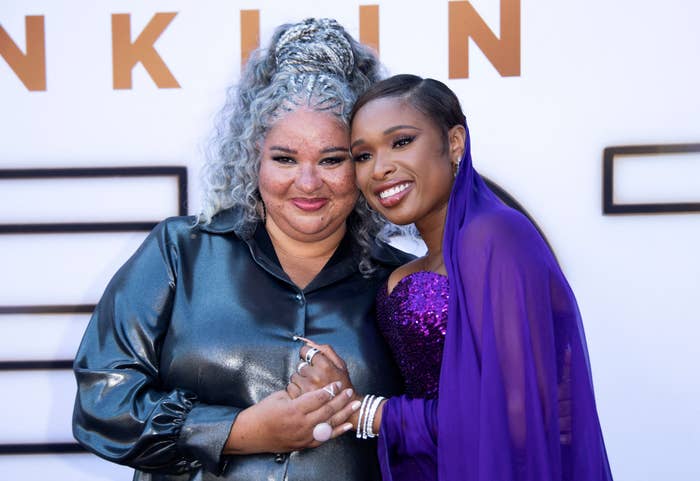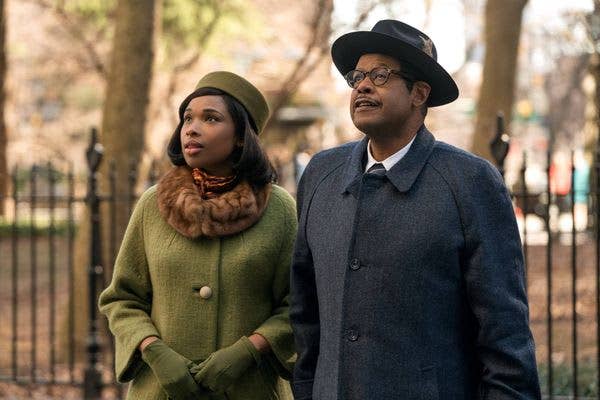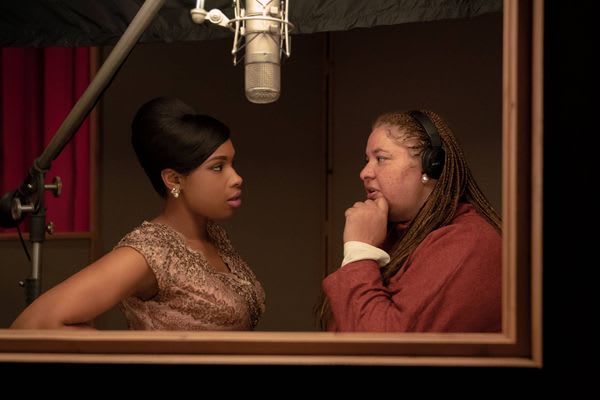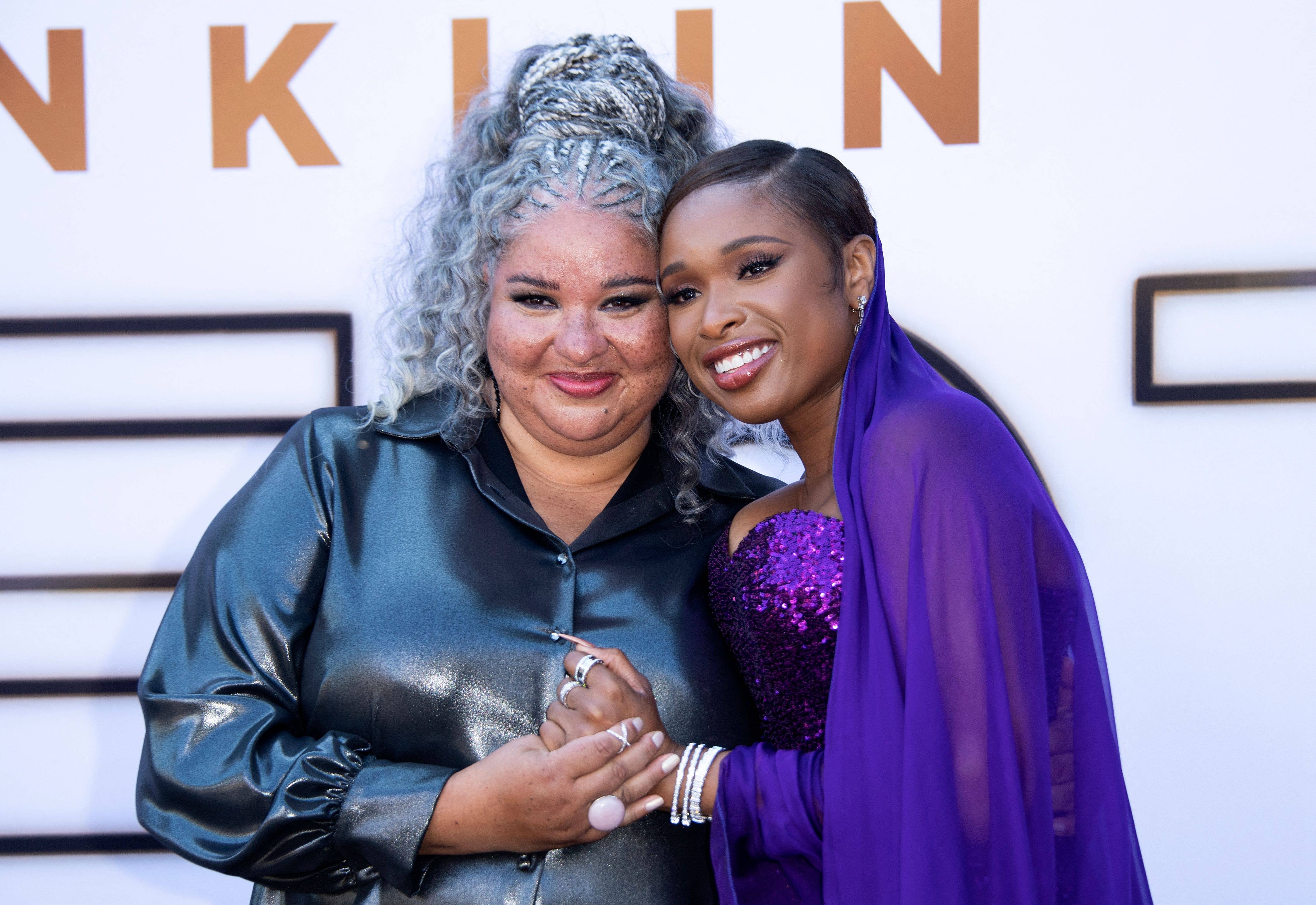
Biopics about iconic music artists are a huge task to take on. Liesl Tommy is making her feature film directorial debut with Respect, a biopic about the one and only Aretha Franklin, hitting theaters on Friday, Aug. 13. Having a woman director and writer at the helm changes how a woman’s story is told. Tommy made sure that the film remained authentic and honest about Franklin’s monumental life, centering the singer and her highs and lows on the road to becoming the Queen of Soul. Complex sat down with Tommy during a press junket for Respect, and she shared why this is the perfect time for the movie to hit theaters, the responsibility of telling Franklin’s story well, the magic of working with Jennifer Hudson, and the importance of sharing Black women’s stories truthfully in film.
Based on a screenplay written by Tracey Scott Wilson, the film focuses mostly on Franklin’s childhood, upbringing, and rise to fame. Franklin knew she could sing ever since she was a child performing in her father’s church, but she didn’t always have a voice. Tommy’s main goal was to show audiences how even though the songstress had one of the most powerful vocals in music, it took time for her to find her inner strength to speak up for herself and become the powerhouse her fans knew her as. “When I first pitched the film to the studio, I didn’t want to do a birth to death film, I wanted to do a specific part of her life. I thought the part that was in the film was so inspiring. Her tenacity, and her vulnerability as a woman during that time finding her way to her power and her agency,” Tommy told Complex. “I thought this movie should be about the woman with the greatest voice in the world, who doesn’t know what her own voice is and that’s the journey we’re watching. I think all of us—whether we’re a regular person or we’re somebody like Aretha Franklin—have to find out in our 20s who we are, who we’re going to be, and how we’re going to live. We carry all this baggage with us from our youth, from our families, from our culture. We have to figure out how to turn the negative into a positive, how to turn our baggage into our wings.”

As the story unfolds, Aretha slowly starts growing into herself not only as an artist but as a woman. After spending her young adult life under the guidance and control of her father, Clarence LaVaughn Franklin (Forest Whitaker), and later her first husband, Ted White (Marlon Wayans), the singer discovers who she is as a person and as an artist on her own. Hudson captures that growth flawlessly as an actor. She gradually went from the young, innocent church singer from Detroit to the legendary Aretha Franklin. The Oscar winner walks, moves, speaks, and sings just like her inspiration, and Tommy says that was no accident. “Working on set on this film was such a joy. I was working on a movie about a woman that I admired and adored from childhood, and then I had Jennifer Hudson,” she said. “Jennifer and I started working on it at least six months before we started shooting it. Jennifer was so committed to being prepared so in terms of the way that Aretha spoke and walked and sang. That work started well before we started shooting, which to me is a testament to Jennifer’s dedication and discipline. By the time we got to set, we were so prepared that we really could be free to try things and to inhabit the character. Because I saw that Jennifer really understood the vision, I was able to explore and to really go for it behind the camera, and that was thrilling as a filmmaker.”

The film is more than two hours long, and while it has a slow pace at times, those moments are necessary for showing Franklin’s humanity. The movie doesn’t just center around her career, triumphs, albums, and performances. It also shows the behind-the-scenes relationships, struggles, and hardships that shaped her. The film addresses Franklin escaping domestic violence in her first marriage, but Tommy handled it delicately without glamourizing pain or violence. “Her journey is the journey of women all around the world. Women all over this planet have gone through what she has gone through or have observed mothers, sisters, friends go through what she went through. It is a truly universal experience,” the director said. “Of course, I myself know people who have had that particular struggle. It was important to be honest about it because it happened but also to treat it with care. No one wants to see women being bashed around on screen anymore. I certainly don’t. My interest was, ‘How do I tell this story in a way that’s going to keep women from being retraumatized?’ This movie, for me, was meant to be uplifting and to have joy in it. That was something that mattered to me. I don’t want us to live in dark places. I think we all needed light after COVID.”

The story also shows some of Franklin’s lowest points in her life as she struggled with alcoholism, but they were followed by moments of triumph and glory, which is a theme people can relate to. Hudson’s performances during the film are a reminder that there’s light, victory, and joy on the other side of pain. “That’s what good music does. And I think that’s what music did for her. Music heals, and that’s why we will never, ever stop listening to music, making music, caring about music,” Tommy says. “Music shows us that we as human beings can survive anything and that we can have joy and triumph in our lives, and that’s the point, for me, of her story.”
Outside of music, the movie shows that Aretha’s bonds with the women in her life were her lifelines. Whenever we see a story, a biopic specifically, of a legendary woman, it’s usually told through the eyes of men. Those films often focus on how some recording executive or a romantic interest helped her succeed, but that wasn’t the case here. “That’s part of the female gaze. There really hasn’t been a big studio movie like this, or a big biopic, with a woman writer and director. Part of our point of view is that you always see movies where some wise man sets a woman back on her course,” Tommy said. “But we all know as women that the truth is that our aunties and mamas and girlfriends and sisters and cousins are the ones who tell us the truth. That’s something that women know, and when the storytelling is left in our hands, we’re going to speak our truth. That’s why there were so many powerful women in this story who propped each other up, who cared for each other, guided each other. That’s real, and that was part of her life.”
The movie’s message of resilience and pushing forward couldn’t come at a better time as the global pandemic is still ongoing, and the director agrees. “It has been quite the journey, with the COVID delays, but I honestly think that the timing ended up being the right timing for the film. I think that audiences are so ready to see a movie like this to feel connected to each other and just to be inspired by her and her life and by the performances on screen. I’m so proud of the actors and so proud of the film, and it’s the right time for it,” Tommy says. “No one can predict that something like COVID would happen and that people would be really knocked down by it. That they would face so many challenges, whether it’s economic, healthwise, or just family dynamics wise but I do feel like everybody needs a message of inspiration right now and a message that we can get through the darkest of our times personally, with faith and with belief in oneself.”
Respect is available in theaters now.


